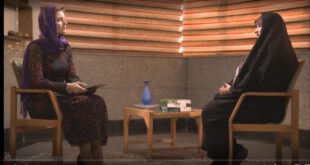What is the role of Iranian positivism in the seminary and university performance?

Dr. Jamileh Alamolhoda: “Considering religion and science as homogeneous and trying to establish a relationship between them is the beginning of all problems.
What was inherited from Iranian positivism was the change of mission in the seminary and university.
There are a series of debates such as religious science, which do not play a very important role in the discourse environment of the university. What has found importance is that the university, and to some extent the seminary, go in the direction of producing and distributing knowledge based on proving or disproving the scientific statement with a precise scientific method.
Scientific tribalism hinders the growth of human sciences. One of the reasons why interdisciplinary sciences are not formed in Iran and become a separate and independent field compared to other fields is that we are not familiar with sharing problems and methods while working in a scientific group. We have so much methodological exclusivity that we don’t accept each other, and in this way, new forms of racism are formed and appear in the form of scientific tribalism. Scientific tribalism is the main problem and sharing is the main solution of humanities.
The main problem of humanities is a kind of scientific tribalism. That is, different fields of human sciences each create a tribe that has special methods for the production and distribution of science. These special methods, in addition to the specific subjects of each field, have gradually caused us to face a kind of methodological monopoly in different fields. That is, the idea is slowly emerging among the researchers who belong to different disciplines that the only way to obtain the truth is their method, and the only important topic of research is their topic, and they even think that the truth is with them. For example, you can see that most of the researchers in the field of philosophy accept the method of philosophical reflection; the researchers of jurisprudence accept the method of ijtihad; and the researchers of mysticism accept intuitive methods as the most valid research methods, and these researchers have a critical view of the methods of other fields. As a result, each group of researchers builds a fence around themselves and considers the rest of the ways to the truth to be a dead end, and even considers the statements, writings and knowledge of others to be lies and deception, while this is not true. Perhaps if it is possible for the researchers to use different methods, their access to the truth will increase. But before testing new methods and combining the methods of other fields, the public space of humanities is focused on exclusivity, and young researchers are already criticized by the fans of popular research traditions, and they are not allowed to innovate new methodologies and newer formulations of combining methods. Research conditions really indicate methodological exclusivity, and these conditions exist both in the seminary and in the university.”
Dr. Jamileh Alamolhoda, faculty member of Shahid Beheshti University, believes that scientific tribalism does not form a single procedure in scientific research. In this new type of tribalism, we do not see the research work of other researchers in the field of human sciences, and this ignorance contributes to the lack of creativity in this field.
 Dr Jamilesadat Alamolhoda Personal Website
Dr Jamilesadat Alamolhoda Personal Website


